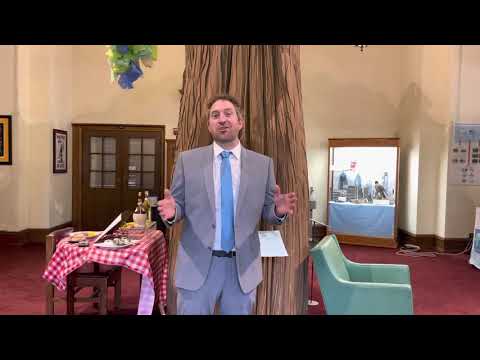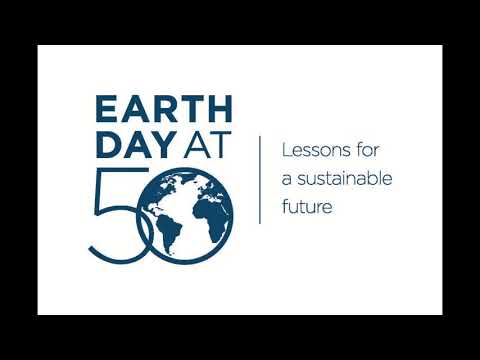Welcome
Earth Day at 50: Lessons for a Sustainable Future
To browse the exhibit, use the tabs on the left hand side of the page to navigate through.
“Earth Day at 50: Lessons for a Sustainable Future is an empowering reminder that positive actions in daily life can combat the ongoing environmental crisis that humans have created.”
On April 22, 1970, U.S. Senator Gaylord Nelson announced the world’s first Earth Day—one day a year in which we pause and think about our impact on the planet.
The seeds for Earth Day were planted in the 1960s: Environmental degradation reached the national psyche through devastating oil spills and polluted rivers. The publication of Rachel Carson’s book Silent Spring pointed out the dangers of pesticides on our sprawling suburban lawns. And Earthrise—NASA’s 1968 photograph of the earth from the moon—put the fragile beauty of the planet and smallness of humanity into perspective. In the 50 Earth Days that followed, the event became a global call to action; the Paris Climate Accords were signed on this date in 2015, and a new White House summit was held in 2021. Mobilization has taken the form of sit-ins, volunteer cleanups, commemorations, conferences, and, at the height of the COVID-19 pandemic in 2020, the largest fully online mass mobilization in history.
The exhibition you are about to see explores the history of Earth Day, past and present environmental activism, the reality of the current global climate crisis, and sustainable practices for a livable future. As you walk around our beautiful Tree of Life constructed out of 1970 repurposed plastic bags, you will be met with both aesthetic beauty reminiscent of the splendor of the earth itself, difficult facts about our shared unsustainable habits, and helpful advice for making our behaviors more sustainable. The exhibition demonstrates that Earth Day is an empowering reminder that positive actions in daily life can combat the ongoing environmental crisis that humans have created.
In the physical space in our museum – and in this virtual space as well – we celebrate 50 former Earth Days, the progress we have made, and the journey we have yet to accomplish.



